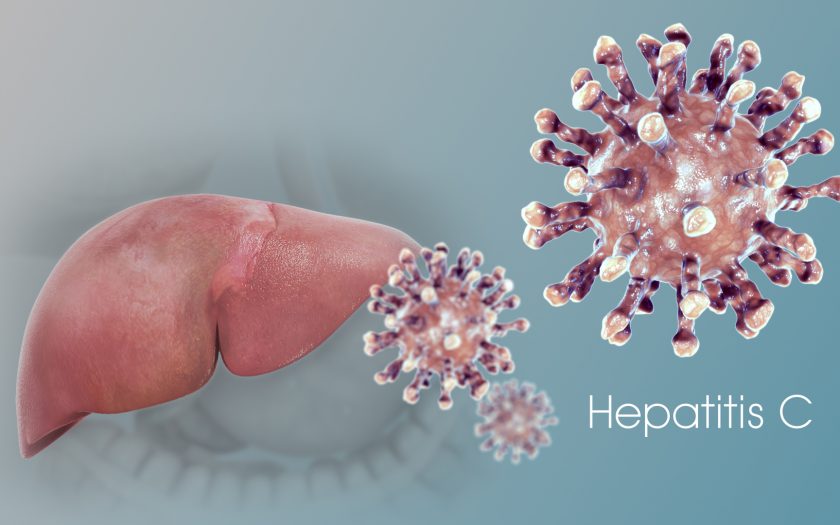Hepatitis C is a viral infectious disease of the liver, characterized by a mild, often subclinical course and a predisposition to formation chronic cirrhosis and malignancy. In most cases, hepatitis C manifests with asymptomatic jaundice. In this regard, it may remain undiagnosed for several years and detected when in liver tissue already develops cirrhosis or a malignant transformation occurs to hepatocellular carcinoma. The diagnosis of hepatitis C is considered to be sufficiently substantiated when viral RNA and antibodies to it are detected in the blood as a result of repeated research by PCR and different types of serological reactions.
Symptoms of viral hepatitis C
Clinically manifestation of viral hepatitis C can manifest itself in the form of general symptoms: weakness, apathy, decreased appetite. Local signs may be noted: severity and discomfort in the right hypochondrium, dyspepsia. With viral hepatitis C fever and intoxication are quite rare symptoms. Sometimes the body temperature can rise to the subfebrile values. The intensity of the manifestation of certain symptoms often depends on the concentration of the virus in the blood, the general state of immunity. Usually, the symptoms are insignificant and the patients are not inclined to attach importance to them.
In the analysis of blood in the acute period of hepatitis C, the low number of leukocytes and thrombocytes is often noted. In a quarter of cases, short-term moderate jaundice is observed (often limited to ictericity of the sclera and biochemical manifestations).
The severe course of viral hepatitis C is noted in no more than 1% of cases. In this case, autoimmune disorders may develop agranulocytosis, aplastic anemia, neuritis of peripheral nerves.
In the usual cases, viral hepatitis C progresses slowly, without expressed symptoms, for years remaining undiagnosed and manifested already at significant degradation of the liver tissue. Often, patients are diagnosed with hepatitis C, when signs of cirrhosis or hepatocellular liver cancer already occur.
Treatment of viral hepatitis C
Therapeutic tactic for hepatitis C is the same as for viral hepatitis B: prescribed diet (restriction of fats, especially saturated, with a normal ratio of proteins and carbohydrates), the exclusion of products that stimulate the secretion of bile and liver enzymes (salty, fried, canned food), saturation of the diet with lipolytic active substances (cellulose, pectin), a large amount of liquid. Alcohol is completely excluded.
Specific therapy for viral hepatitis is the appointment of interferon in combination with ribavirin. More modern medications with fewer side effects are drugs with direct antiviral action. There are Daclahep, Hepcvir.
Basic therapy can be complemented by oral detoxification, antispasmodics, enzymes, antihistamines, and vitamins. As prevention of cholestasis in a complex of therapeutic measures includes drugs ursodeoxycholic acid.

